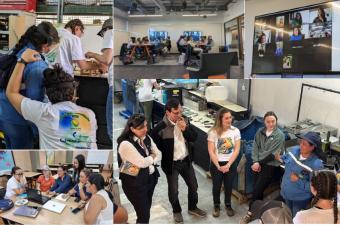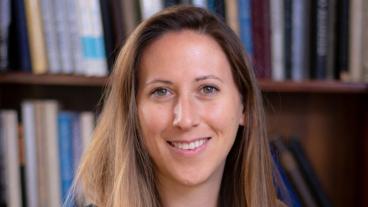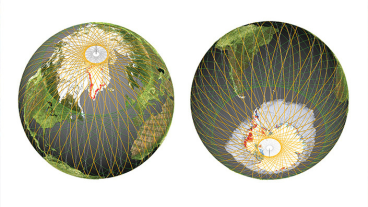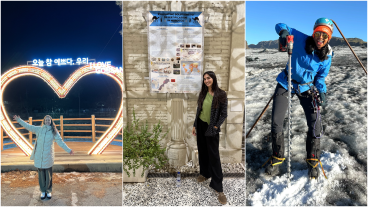Humanitarian Engineering students collaborate with Colombian communities to improve urban mining practices

After meeting virtually for two months with women from the Asociación Puerta de Oro, Mines students traveled to Colombia to engage in a co-creation process with e-waste recycling workers in their place of work. Bottom right photo: Humanitarian Engineering and Science student Sofia Schlezak stands next to Colombian government officials dedicated to human rights protection who participated in the collaboration, listening to workers and students about how the prototypes could enhance workers’ human rights. Bottom left photo: HES student Jaime Styer works with Colombian engineering faculty and community leaders on the co-design of her workshop.
Millions of people around the world make a living by recycling electrical and electronic waste, also known as e-waste, as well as construction and demolition waste. Part of this “urban mining” happens in the informal sector, where workers remain invisible from the public eye, bearing the brunt of the risks and hazards involved in the practice.
This spring, Mines Humanitarian Engineering students dedicated their coursework and thesis research to improving the working conditions of Colombian women who practice urban mining, traveling to Colombia to collaborate with women e-waste recyclers where they live and work.
The semester-long goal of the Engineering for Sustainable Community Development course (EDNS 477) was to co-define, ideate and prototype solutions to the problems that women e-waste recyclers face.
True to the principles of the HE program, the students spent two full months meeting virtually with women from the Asociación Puerta de Oro, a Colombian association dedicated to bringing together and protecting informal recyclers – to jointly define the key problems and build trust and empathy. The class also partnered with Diversa, a Colombian community-engagement organization that connects students with communities to work together to define and solve community problems.
From this collaborative process, the problems that emerged included how to strip electronic wires, identify and sort plastics, and dismantle printed circuit boards to maximize access to valuable materials while reducing labor-related injuries.
After learning about the history, politics and economics of recycling in Colombia, a group of eleven students traveled to Bogota, Colombia during Spring Break to meet the women in person and test their assumptions and ideas on the ground. Many quickly realized that what might work on paper in a Mines classroom does not work in recycling sites.
“Traveling to Colombia truly showed me the importance of interacting with the people affected by an engineering project,” said Chrystal Delius Cordova, a graduate student in environmental engineering. “Nothing compares to the lessons learned and connections built through having face-to-face interactions, which can change your entire solution and perception of the problem.”
Added mechanical engineering student Jack Danley: “It is rare that we get to perform our ideation and design so intimately with the stakeholders. This trip strengthened my understanding of the relationship between engineer and end-user and humanized the design process.”
Also traveling to Colombia was Jaime Styer, a graduate student in Humanitiarian Engineering and Science whose thesis research aims to contribute to empowering women in low-income communities in Colombia by extracting value from construction and demolition waste. While there, she delivered a workshop for women interested in construction and demolition waste recycling in a low-income community where she worked last summer. She designed the workshop with community representatives and local Colombian experts to explore how the community members could create economic value from the waste while working in safe and environmentally sound conditions. Throughout her research, Styer has worked with faculty and students from Universidad Nacional de Colombia and Universidad Minuto de Dios, two Colombian universities with whom Mines has signed agreements for student exchanges.
This kind of “urban mining” – recycling waste from electronics, construction and demolition – can play an important role in meeting the demand for more metals and materials, especially as it becomes more difficult to open new mines. The Mines Humanitarian Engineering and Science students are showing how this practice can be done in ways that promote the wellbeing of people and the environment.
“These experiences have the potential to broaden our research topics and make explicit their social relevance, increase the visibility of waste management issues at a global level specially the work done by informal workers, promote grad-undergrad alliances, and generate a significant relationship between Humanitarian Engineering and other programs at Mines such as materials and civil engineering,” said Sofia Schlezak, a fellow Humanitarian Engineering and Science graduate student, who is doing her thesis on e-waste management in Argentina and served as a project consultant for the class.




